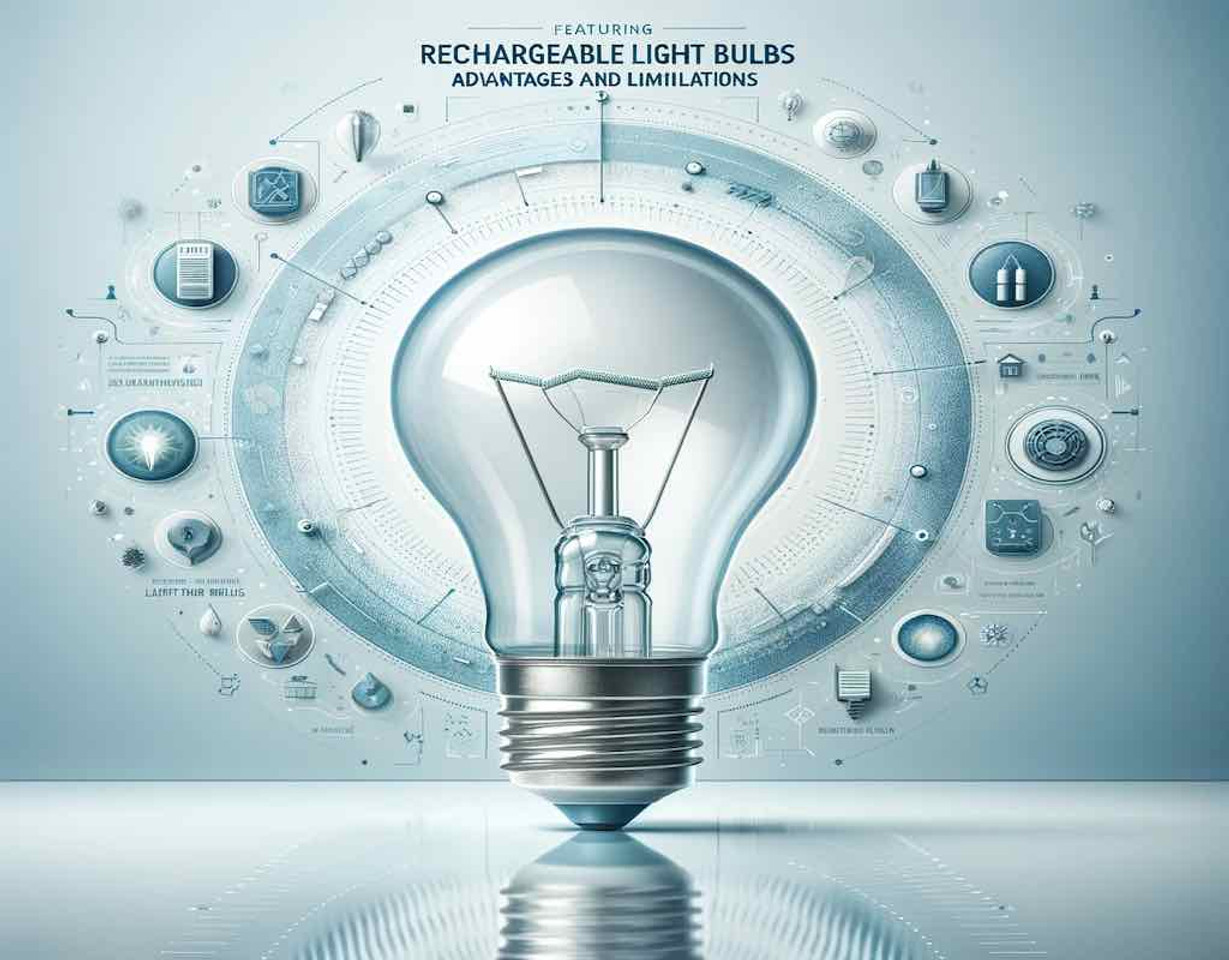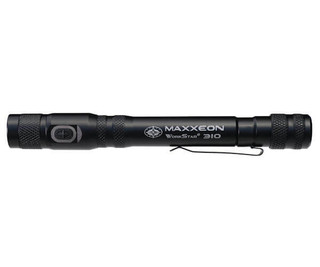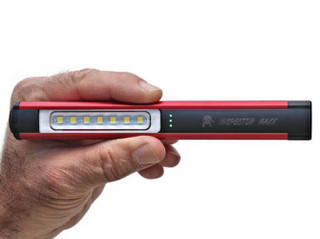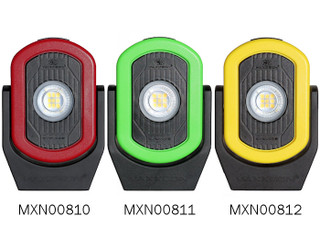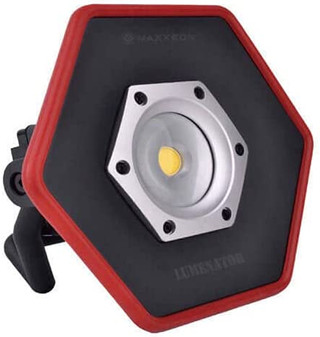Rechargeable Light Bulbs: Advantages and Limitations
What are rechargeable light bulbs?
Rechargeable light bulbs are light bulbs that can be charged and reused multiple times. They typically use LED technology, known for its energy efficiency and long lifespan. Rechargeable light bulbs are available in various shapes and sizes, making them suitable for various applications.
Key Takeaways: Rechargeable Light Bulbs
- Energy Efficiency: Rechargeable LED bulbs consume significantly less energy than traditional incandescent bulbs, leading to lower electricity bills.
- Long-Term Cost Savings: Despite higher initial costs, rechargeable bulbs can save money over time due to their energy efficiency and longer lifespan.
- Environmental Impact: These bulbs reduce waste and energy consumption, making them a more eco-friendly lighting option.
- Versatility: Rechargeable bulbs offer flexibility for various applications, including outdoor use and emergency lighting.
- Technological Advancements: The technology behind rechargeable light bulbs is continuously improving, addressing limitations like brightness and battery life.
- Proper Usage: To maximize the benefits of rechargeable bulbs, it's important to follow manufacturer guidelines for charging, storage, and disposal.
- Considerations: When choosing rechargeable bulbs, factors like battery life, brightness, and compatibility with existing fixtures should be carefully evaluated.
How do rechargeable light bulbs work?
Rechargeable light bulbs have a built-in battery that stores energy. The battery powers the LED light source when the light bulb is turned on. The battery can be recharged using various methods, such as a USB cable, AC adapter, or solar panel.
Different types of rechargeable light bulbs
There are two main types of rechargeable light bulbs: lithium-ion and nickel-cadmium. Lithium-ion batteries are more expensive but have a longer lifespan and can hold more charge. Nickel-cadmium batteries are less expensive but have a shorter lifespan and can only hold a limited charge.
Advantages of rechargeable light bulbs
Rechargeable light bulbs have several advantages over traditional lighting options, including energy efficiency, environmental friendliness, durability, and flexibility. Rechargeable light bulbs offer some advantages over traditional light bulbs, including:
- Energy efficiency: Rechargeable light bulbs are much more energy-efficient than traditional ones, such as incandescent and halogen bulbs. This means you can save money on your energy bills long-term.
- Environmental friendliness: Rechargeable light bulbs are more environmentally friendly than traditional light bulbs because they reduce the amount of waste sent to landfills.
- Durability: Rechargeable light bulbs are more durable than traditional ones because they are less fragile. This makes them ideal for use in high-traffic areas or applications where they may be exposed to the elements.
- Flexibility: Rechargeable light bulbs can be used in various applications, including homes, businesses, and outdoor spaces. This makes them a versatile and convenient lighting solution.
- Cost savings in the long term: While rechargeable light bulbs may have a higher initial cost than traditional light bulbs, they can save you money in the long term due to their energy efficiency and durability.
Rechargeable light bulbs are becoming increasingly popular, and Tend Industrial Supplies offers various rechargeable light bulbs. Whether you are looking for rechargeable light bulbs for your home, business, or outdoor space, tendsupplies.com has the perfect solution.
Rechargeable light bulbs offer several advantages over traditional ones, making them a smart choice for consumers and businesses. While rechargeable light bulbs may have a higher initial cost, they can save you money in the long term due to their energy efficiency and durability.
Limitations of rechargeable light bulbs
Despite their many advantages, rechargeable light bulbs also have some limitations, including:
- Limited battery life and recharge cycles: Rechargeable light bulbs have a limited battery life, meaning they can only be used for a certain amount before recharging. The number of recharge cycles that a rechargeable light bulb can undergo also varies depending on the type of battery. Lithium-ion batteries have a longer lifespan than nickel-cadmium batteries, but they can only be recharged a few times before degrade.
- Lower brightness levels: Rechargeable light bulbs are not as bright as traditional ones, such as incandescent and halogen bulbs. This can be a disadvantage for applications where high brightness is required, such as task lighting in a kitchen or office.
- Higher initial costs: Rechargeable light bulbs typically have a higher initial cost than traditional ones. This is due to the cost of the built-in battery. However, the long-term cost savings of rechargeable light bulbs can offset the higher initial cost.
- Compatibility issues with certain fixtures: Not all rechargeable light bulbs are compatible with all fixtures. Before purchasing, it is essential to check the compatibility of a rechargeable light bulb with a fixture.
- Special disposal requirements: Rechargeable light bulbs contain batteries that must be disposed of properly. Rechargeable light bulbs should not be thrown in the regular trash, as the batteries can release harmful chemicals into the environment. Instead, rechargeable light bulbs should be recycled or taken to a hazardous waste collection facility.
Overall, rechargeable light bulbs offer some advantages over traditional light bulbs. However, it is essential to be aware of their limitations before purchasing.
Tips for choosing and using rechargeable light bulbs
When choosing rechargeable light bulbs, consider the following factors:
- Battery life: Choose rechargeable light bulbs with a battery life that meets your needs. Consider how long you need the light bulbs to last on a single charge and how often you will recharge them.
- Brightness: Choose rechargeable light bulbs that are bright enough for the intended application. Choose rechargeable light bulbs with a higher lumen output if you need high brightness.
- Compatibility: Make sure that the rechargeable light bulbs you choose are compatible with the fixtures you will be using them in.
- Price: Rechargeable light bulbs can range from a few dollars to over $100. Choose rechargeable light bulbs that fit your budget.
Here are some tips for using rechargeable light bulbs:
We have offered some guidelines and tips on how to use rechargeable light bulbs. Here are some guidelines to consider:
- Recharge the light bulbs regularly: Rechargeable light bulbs should be recharged regularly to avoid over-discharging the battery. This will help to extend the life of the battery.
- Store the light bulbs properly: When not in use, rechargeable light bulbs should be stored in a cool, dry place. This will help to preserve the battery life.
- Dispose of the light bulbs properly: Rechargeable ones should be recycled or taken to a hazardous waste collection facility for proper disposal.
Following these tips, you can choose and use rechargeable light bulbs effectively.
Are rechargeable light bulbs worth it?
Yes, rechargeable light bulbs are worth it. They offer several advantages over traditional light bulbs, including energy efficiency, environmental friendliness, durability, flexibility, and cost savings in the long term. While rechargeable light bulbs may have a higher initial cost, they can save you money in the long term due to their energy efficiency and durability.
Tips for choosing and using rechargeable light bulbs
When choosing rechargeable light bulbs, consider the following factors:
- Battery life: Choose rechargeable light bulbs with a battery life that meets your needs. Consider how long you need the light bulbs to last on a single charge and how often you will recharge them.
- Brightness: Choose rechargeable light bulbs that are bright enough for the intended application. Choose rechargeable light bulbs with a higher lumen output if you need high brightness.
- Compatibility: Make sure that the rechargeable light bulbs you choose are compatible with the fixtures you will be using them in.
- Price: Rechargeable light bulbs can range from a few dollars to over $100. Choose rechargeable light bulbs that fit your budget.
Here are some tips for using rechargeable light bulbs:
- Recharge the light bulbs regularly: Rechargeable light bulbs should be recharged regularly to avoid over-discharging the battery. This will help to extend the life of the battery.
- Store the light bulbs properly: When not in use, rechargeable light bulbs should be stored in a cool, dry place. This will help to preserve the battery life.
- Dispose of the light bulbs properly: Rechargeable ones should be recycled or taken to a hazardous waste collection facility for proper disposal.
Rechargeable light bulbs for different applications
Rechargeable light bulbs can be used in a variety of applications, including:
- Home: Rechargeable light bulbs can be used in all home areas, including the living room, bedroom, kitchen, and bathroom.
- Office: Rechargeable light bulbs can provide task and general lighting.
- Outdoor: Rechargeable light bulbs can be used in outdoor spaces, such as patios, decks, and camping areas.
Maxxeon brand rechargeable light bulbs at tendsupplies.com
tendsupplies.com offers a wide variety of rechargeable light bulbs from the Maxxeon brand. Maxxeon rechargeable light bulbs are known for their high quality, durability, and long battery life.
Comparison of rechargeable light bulbs to other types of light bulbs
Rechargeable light bulbs are more energy-efficient and durable than traditional ones, such as incandescent and halogen bulbs. Rechargeable light bulbs are also more environmentally friendly than traditional light bulbs because they reduce the amount of waste sent to landfills.
Future of rechargeable light bulb technology
Rechargeable light bulb technology is constantly evolving. New rechargeable light bulbs are being developed with longer battery life, higher brightness levels, and lower costs.
Frequently Asked Questions About Rechargeable Light Bulbs
- Q: How long do rechargeable light bulbs typically last? A: The lifespan of rechargeable LED bulbs can range from 20,000 to 50,000 hours of use. This is significantly longer than traditional incandescent bulbs, which typically last 1,000 to 2,000 hours.
- Q: Can rechargeable light bulbs be used in any light fixture? A: While many rechargeable bulbs are designed to fit standard fixtures, it's important to check compatibility before purchasing. Some may require specific fittings or have unique charging mechanisms.
- Q: How often do I need to charge rechargeable light bulbs? A: The frequency of charging depends on usage and the bulb's capacity. Some bulbs can last up to 24 hours on a single charge, while others may need charging after 3-5 hours of continuous use. Always follow the manufacturer's recommendations.
- Q: Are rechargeable light bulbs safe to use? A: Yes, when used properly, rechargeable light bulbs are safe. They produce less heat than incandescent bulbs and are often made with durable materials. However, it's important to follow safety guidelines, especially when charging.
- Q: Can rechargeable light bulbs be recycled? A: Yes, most rechargeable light bulbs can be recycled. However, due to their electronic components and batteries, they should not be disposed of in regular trash. Many electronics stores and recycling centers accept these bulbs for proper disposal.
Related Articles
- How Do Rechargeable Light Bulbs Work? A Technical Overview Dive deeper into the technology behind rechargeable light bulbs and understand their inner workings.
- Top 10 Energy-Efficient Lighting Solutions for Your Home Explore other energy-efficient lighting options to complement your rechargeable light bulbs.
- The Impact of LED Technology on Industrial Lighting Learn how LED technology, including rechargeable options, is transforming industrial lighting applications.
- Choosing the Right Work Light for Your Job Site Discover how rechargeable work lights can improve safety and efficiency on job sites.
- Smart Lighting Systems: The Future of Home and Office Illumination Explore how rechargeable light bulbs fit into the broader trend of smart lighting technologies.
Shop for Maxxeon brand rechargeable light bulbs today at tendsupplies.com and save money on your energy bills in the long term!


